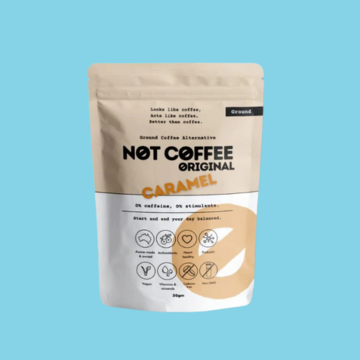Written By  Go Vita
Go Vita
blog
Unlocking the Benefits of Magnesium Glycinate

A Comprehensive Wellness Boost: Discover How Magnesium Glycinate Elevates Stress Relief, Bolsters Bone Density, Enhances Muscle Function, Ensures Electrolyte Balance, and Paves the Way to Better Sleep Quality
Stress and anxiety relief
Electrolyte balance
Bone health
Muscle function and neuromuscular transmission
Improved sleep quality
Heart health and energy production
Incorporating magnesium into your diet:

Unlocking the Benefits of Magnesium Glycinate
A Comprehensive Wellness Boost: Discover How Magnesium Glycinate Elevates Stress Relief, Bolsters Bone Density, Enhances Muscle Function, Ensures Electrolyte Balance, and Paves the Way to Better Sleep Quality
Magnesium glycinate, a fusion of magnesium and glycine, has gained widespread acclaim for its myriad of health benefits. Unlike some other magnesium supplements that may upset the stomach, magnesium glycinate is gentle on digestion, making it ideal for those with sensitive stomachs. Magnesium glycinate ensures maximum bioavailability and therapeutic effectiveness while minimising gastrointestinal discomfort. From relieving stress and anxiety to promoting electrolyte balance, bone health, muscle function, and sleep quality, magnesium glycinate shines brightly among its counterparts due to its exceptional absorption.
Stress and anxiety relief
In today's fast-paced world, stress and anxiety are common challenges. Magnesium plays a crucial role in addressing these issues by regulating neurotransmitters and ultimately promoting a sense of calm and wellbeing. A study by Tarleton et al. (2017) investigated the role of magnesium supplementation in the treatment of depression and found that it significantly improved subjective measures of stress and anxiety in adults experiencing chronic stress. This highlights the potential of magnesium supplementation as a holistic approach to managing stress and anxiety in our modern lives.
Electrolyte balance
Electrolytes are essential for nerve and muscle function. Magnesium supports electrolyte balance, aiding hydration and preventing fatigue, weakness, and muscle cramps.
Bone health
Magnesium is vital for bone density, contributing to bone strength, preservation, and remodelling. It accounts for about 60 percent of the body's magnesium stores.
Muscle function and neuromuscular transmission
Magnesium is vital for supporting muscle relaxation, neuromuscular function, and overall performance, thereby reducing the occurrence of cramps and spasms. Its role extends to neurotransmission and muscle contraction, including the heart muscle, with a significant portion—approximately 26 percent of the body's magnesium stored in muscles. A study conducted by Setaro et al. (2013) and published in the Journal of Sports Sciences showcased the efficacy of magnesium supplementation in reducing muscle cramps and alleviating pain intensity among athletes. This underscores the importance of maintaining optimal magnesium levels for enhanced physical performance and overall wellbeing.
Improved sleep quality
Quality sleep is essential for overall health. Magnesium promotes better sleep quality by calming the nervous system and regulating sleep-wake cycles, leading to deeper, more restorative sleep.
Heart health and energy production
Quality sleep is essential for overall health. Magnesium promotes better sleep quality by calming the nervous system and regulating sleep-wake cycles, leading to deeper, more restorative sleep.
Magnesium acts as a cofactor in over 300 enzyme systems, regulating biochemical reactions such as blood pressure regulation and energy production, including ATP production. Magnesium is involved in numerous chemical reactions necessary for metabolising carbohydrates, protein, and fats to produce energy.
Incorporating magnesium into your diet:
While supplements are beneficial, incorporating magnesium-rich foods into your diet is equally important:
· Leafy greens: Spinach, kale, and Swiss chard are rich sources of magnesium.
· Nuts and seeds: Almonds, cashews, pumpkin seeds, and sunflower seeds provide magnesium.
· Legumes: Beans, lentils, and chickpeas are high in magnesium.
· Whole Grains: Quinoa, brown rice, oats, and barley offer magnesium.
· Avocado: Enjoy sliced avocado in various dishes for a magnesium boost.
· Dark chocolate: Indulge in dark chocolate for its magnesium content and antioxidant benefits.
Always talk to a healthcare professional before starting any new supplement regimen or making significant lifestyle changes, especially if you have underlying health conditions or are on medication.
Information presented is for information purposes only and is not intended to replace advice or treatment from qualified healthcare professionals. The information is not intended to treat or diagnose. Always consult your healthcare professional before taking nutritional or herbal supplements. If you are pregnant, breastfeeding, have any allergies or diagnosed conditions, or are taking prescription medications, always consult your healthcare professional before taking nutritional or herbal supplements.
Binge Read on these

Natural Ways to Support Stress & Anxiety: Spotlight on Ashwagandha and Magnolia
Discover natural ways to manage stress and anxiety with evidence-based herbs like Ashwagandha and Magnolia. Learn how...

Going Back to School: Tips for Adults, Kids, and Feeling Your Best

Revitalise Your Wellbeing: Herbal and Lifestyle Support for the End-of-Year Season

Best-ever glazed ham

Natural Ways to Support Stress & Anxiety: Spotlight on Ashwagandha and Magnolia
Discover natural ways to manage stress and anxiety with evidence-based herbs like Ashwagandha and Magnolia. Learn how...

Going Back to School: Tips for Adults, Kids, and Feeling Your Best

Revitalise Your Wellbeing: Herbal and Lifestyle Support for the End-of-Year Season

Best-ever glazed ham

